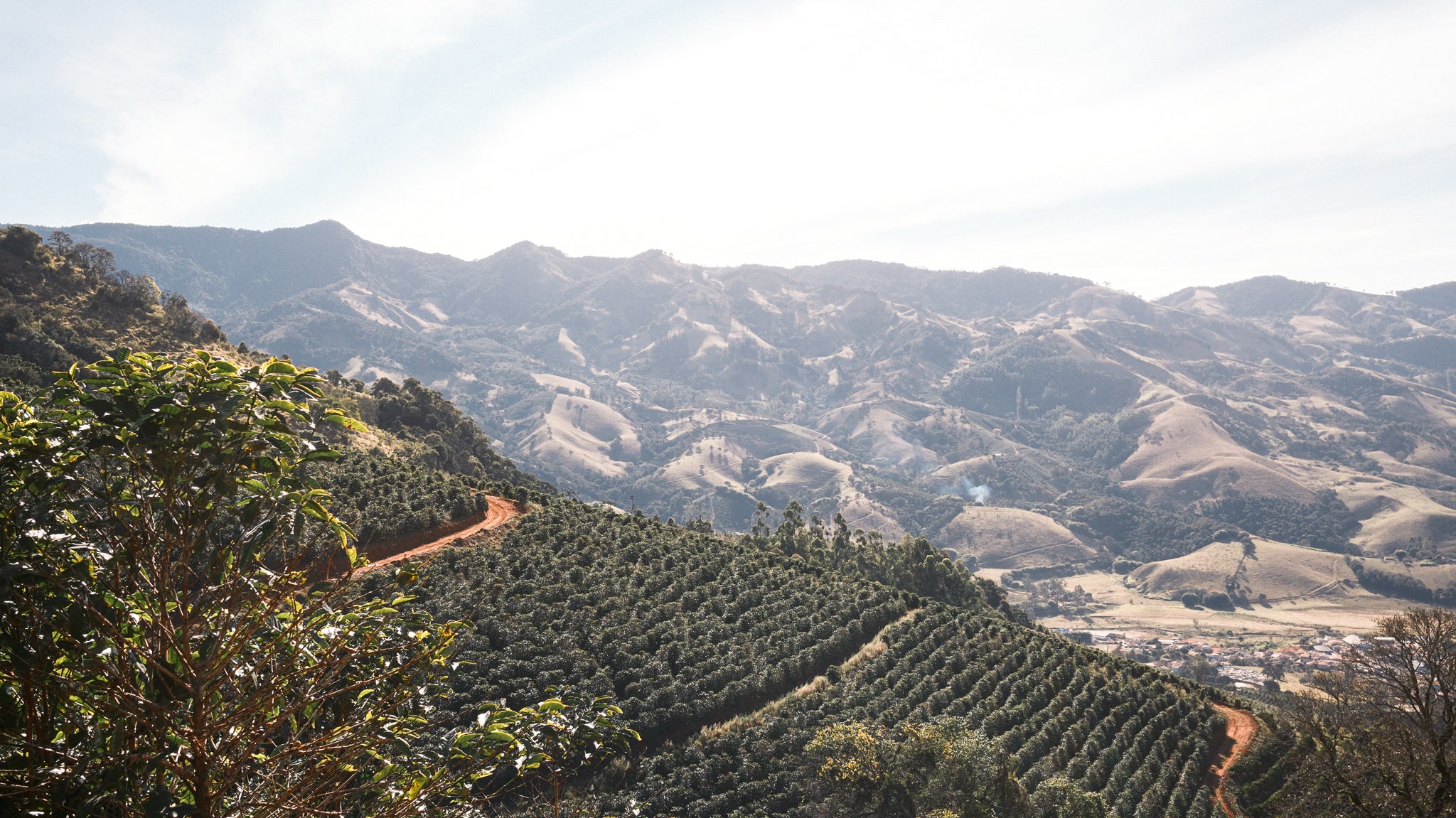REGION: Nyeri
PROCESS: Washed
VARIETIES: SL28 & SL34
ALTITUDE: 1800-1900 MASL
NOTES: Blackcurrants & blackberries, winey, brown sugar
This Ndiaini AA lot is from the renowned Nyeri region in central Kenya. The coffee is named after the village of Ndiaini, a name that translates to “deepest part of the river” in the local language, evoking both a sense of place and depth of flavour. The coffee is produced by smallholder farmers affiliated with the Ndia-Ini Cooperative, an established organization that has played a key role in the local coffee industry since its founding in 1969. Situated near the rich, red volcanic soils and cool high-altitude climate of Nyeri, the Ndiaini area offers ideal growing conditions for coffee.
In the cup we're tasting lots of dark berries like blackcurrants and blackberries, along with a 'grippy' gamay like wine note (shout out to Tim our resident wine expert for that one!). Lots of caramalised sugar, lots of yummy yummo. We find Kenyan's never fail to stand out in our offer list, and this one is no exception.
FROM OUR IMPORTER - FALCON
The vast majority of the coffee bought and sold in Kenya is traded through the national auction system, where marketing agents enter cooperatives' and estates’ coffee and traders come to bid. The main buyers from this auction system are large multinationals, who then offer the lots to importers and roasters. Unfortunately, this has been the only way to purchase Kenyan coffee for a long time and we’ve become frustrated with the lack of transparency, poor service and price volatility.
In the last few years we have started buying directly from the auction using a local Kenyan company, who bid on the coffee on our behalf, after we have cupped through auction samples which have initially been filtered by a local cupper. This was a conscious decision to support local, Kenyan businesses, and to make the supply chain more efficient and to get the coffees moving quicker from origin.
To get the best from your coffee please take a look at our brew guides HERE
ALL PACKAGING IS CARBON NEUTRAL AND WIDELY RECYCLABLE


